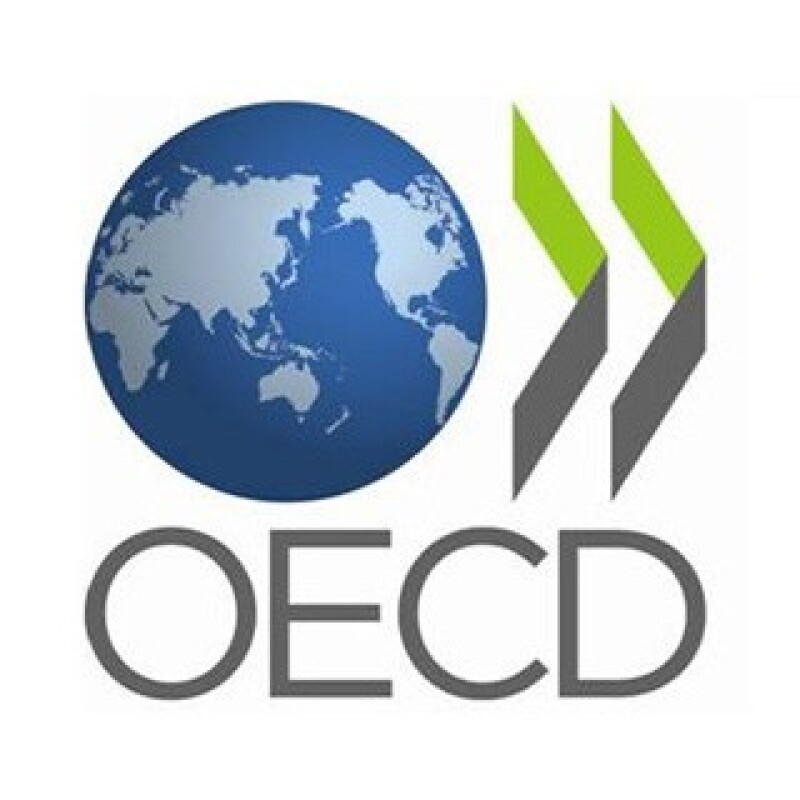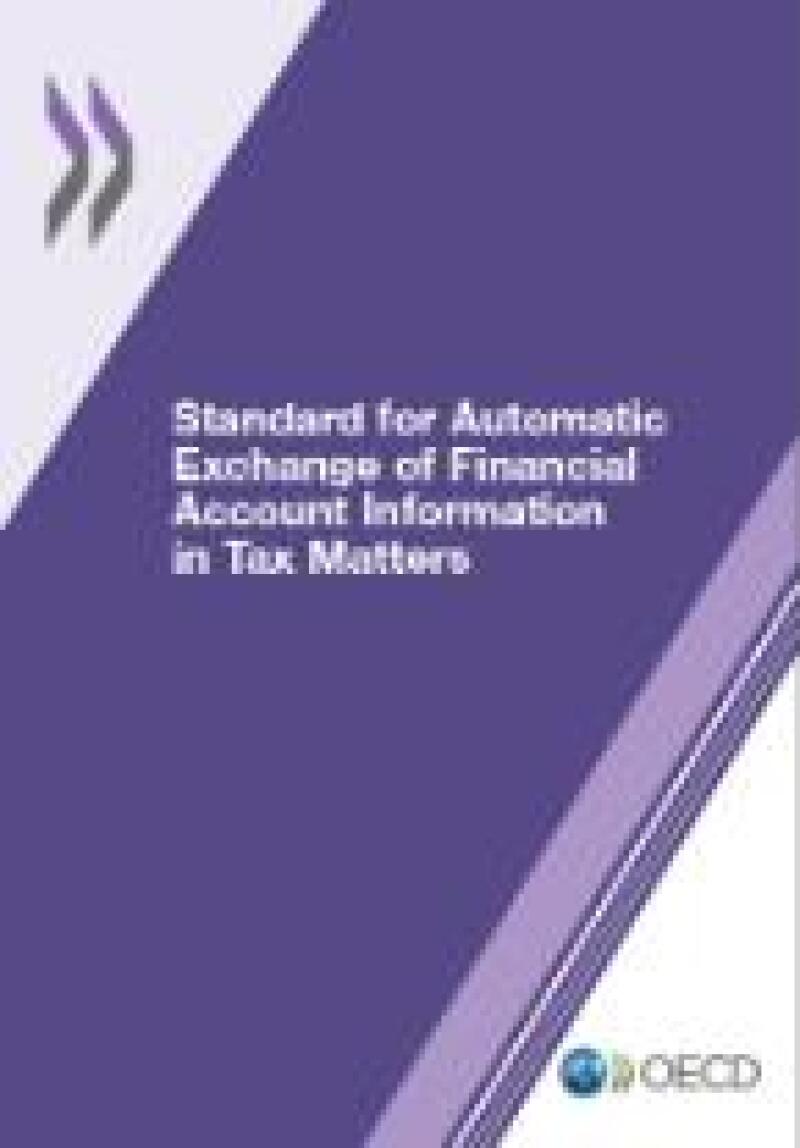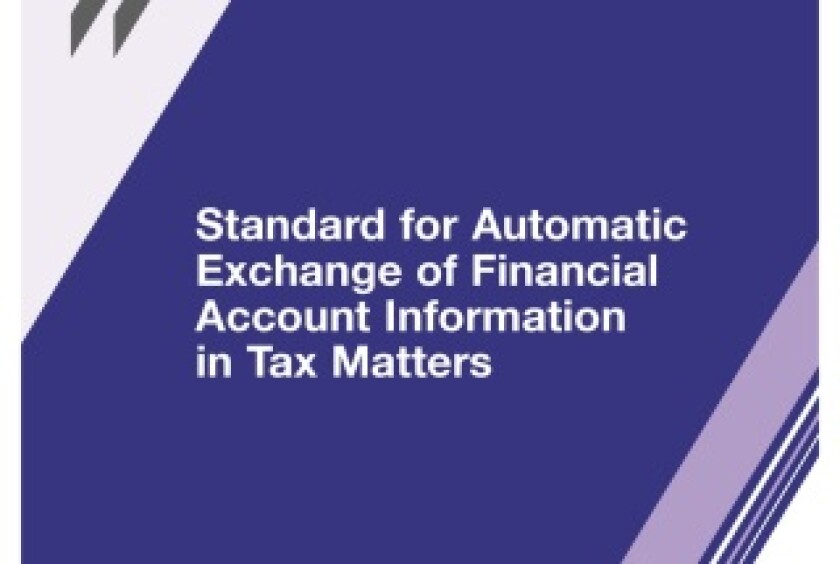
In this exclusive interview, Ralph Cunningham of International Tax Review asks Achim Pross (AP), Head of Division at the OECD's Centre for Tax Policy and Administration, responsible for a number of BEPS action items but also its exchange of information work, and Jorge Correa (JC), one of the principal drafters of the new Standard, about how the standard builds on existing information exchange rules, how it will be implemented and who will be doing it, and key issues such as data privacy and confidentiality.
ITR: The standard largely builds on the Foreign Account Tax Compliance Act (FATCA). Can you explain this a little more and can you tell us what the key differences are?
AP: We built on FATCA but also on the Financial Action Task Force (FATF) Recommendations and some approaches familiar in Europe such as the Savings Directive. The basic idea was to create a single global standard that would avoid a proliferation of different standards and to do so without reinventing the wheel. We got a strong steer from both government and business to build on FATCA and, in particular, the intergovernmental approach to the implementation of FATCA. In fact, you may have noticed that Article 6 of the IGA Model 1 itself had a reference to the development of a common model for automatic exchange of information, including reporting and due diligence standards.
However, FATCA and the IGA Model 1 do not translate one to one into the multilateral context. Thus, changes had to be made to remove US specificities, the most obvious being the elimination of reporting obligations based on citizenship, so that the Standard is a pure residence reporting system.
At a high level, the key differences to FATCA are probably the following:
For Lower Value Accounts, a residence address test was incorporated building on the EU Savings Directive and the indicia search was simplified to reduce the risk of false positives for both Lower Value and High Value Accounts.
There is also a rule on undocumented accounts, as in the multilateral context you can't have a default reporting obligation, as you can in FATCA, which would point to one particular country.
There are no thresholds for individual accounts, but certain simplifications under the residence address test and special rules on certain dormant accounts and other low-risk products.
As regards entity accounts, the $250,000 threshold has been retained but not the $1 million.
Further, a look-through requirement was added for professionally managed investment entities in non-participating jurisdictions and explicit criteria are included in the Standard to determine low-risk financial institutions and accounts, so that countries do not need to develop individual annexes each time they enter into an exchange relationship.
ITR: How will this standard be implemented, by whom and perhaps over what time frame?

AP (left): The Standard itself consists of essentially two components: reporting and due diligence rules pursuant to which financial institutions collect and report certain financial information relating to their accountholders, and an exchange component where governments or, more technically, competent authorities exchange the information reported with other competent authorities.
For governments, implementation essentially involves four steps:
1. translating the reporting and due diligence requirements into domestic law;
2. selecting the legal basis for the exchange of information here, the Multilateral Convention on Mutual Administrative Assistance in Tax Matters will play an important role;
3. putting in place the administrative and IT infrastructure to collect and exchange information under the Standard; and
4. protecting confidentiality and data safeguards. There can be no exchange of information without proper safeguards in law and in practice protecting the information exchanged.
There are already more than 65 jurisdictions that have now publicly committed to implement the Standard (see Box 1), while more than 40 of them have committed to a specific and ambitious timetable leading to the first automatic information exchanges in 2017 (see Box 2). More jurisdictions are expected to follow in the run-up to the late-October meeting of the Global Forum on Transparency and Exchange of Information for Tax Purposes, which will be held in Berlin.
In terms of timeframes, for instance, the Early Adopters initiative which covers over 40 countries and jurisdictions, has agreed to a timeline leading to the first exchange with respect to New Accounts and High Value Accounts by the end of September 2017, and with respect to Lower Value Account and Preexisting Entity Accounts by the end of September 2018. Thus, under this timeline, jurisdictions will begin collecting and exchanging data in 2017.
| Box 1: These jurisdictions have committed to implementing the standard Andorra, Anguilla, Argentina, Australia, Austria, Belgium, Bermuda, Brazil, British Virgin Islands, Bulgaria, Canada, Cayman Islands, Chile, People's Republic of China, Colombia, Costa Rica, Croatia, Cyprus, Czech Republic, Denmark, Estonia, Faroe Islands, Finland, France, Germany, Gibraltar, Greece, Guernsey, Hungary, Iceland, India, Indonesia, Ireland, Isle of Man, Israel, Italy, Japan, Jersey, Korea, Latvia, Liechtenstein, Lithuania, Luxembourg, Malaysia, Malta, Mexico, Montserrat, Netherlands, New Zealand, Norway, Poland, Portugal, Romania, Russian Federation, Saudi Arabia, Singapore, Slovak Republic, Slovenia, South Africa, Spain, Sweden, Switzerland, Turkey, Turks & Caicos Islands, UK, US and the EU. |
| Box 2: These jurisdictions have committed to a timetable leading to the first automatic information exchanges in 2017 Anguilla, Argentina, Belgium, Bermuda, British Virgin Islands, Bulgaria, Cayman Islands, Colombia, Croatia, Cyprus, Czech Republic, Denmark, Estonia, Faroe Islands, Finland, France, Germany, Gibraltar, Greece, Guernsey, Hungary, Iceland, India, Ireland, Isle of Man, Italy, Jersey, Latvia, Liechtenstein, Lithuania, Malta, Mexico, Montserrat, Netherlands, Norway, Poland, Portugal, Romania, Slovak Republic, Slovenia, South Africa, Spain, Sweden, Turks & Caicos Islands, and UK. |
Of course, we encourage as much as possible a "big bang" approach with coordinated implementation across the maximum number of countries, which benefits both governments and financial institutions with cross border operations.
ITR: Should we read anything into the fact that the lists of countries who have committed to implementation and who have committed to the first exchanges in 2017 are different? I'm thinking of the US and China, in particular.
AP: I would not read too much into it. In fact I would expect that in the run-up to the Berlin meeting we will have more countries committing including further commitments to the 2017 timeline.
ITR: Will this be the Standard that will be implemented? Will it change in any way?
AP: Yes, this will be the Standard that will get implemented. As foreseen by the Standard, jurisdictions are free to use certain

ITR: What were some of the key issues that you worked out in the commentary?
JC: Perhaps a key issue during this stage of the process was the treatment of new accounts of preexisting customers: should they be treated as new accounts or should they be treated as pre-existing accounts given the ongoing customer relationship? A fine balance between compliance costs and the need to have up-to-date customer residence information was achieved, in my view, with the inclusion of an alternative provision in the Commentary. This provision allows a new account of a preexisting customer to be treated as a preexisting account provided that, on top of the equivalent FATCA conditions, the opening of the new account does not require the account holder to provide additional or amended customer information.
Another key issue was to develop guidance on the application of the residence address test in different circumstances, including, for instance, for pre-AML (anti money-laundering regulations) accounts and in doing so, balancing compliance costs with a need to have a single and effective standard. Other issues where similar balancing issues came into play included for instance the low-risk categories for Non-Reporting FIs and Excluded Accounts.
Explain, if I am responsible for tax reporting at a financial institution, the process by which I will help jurisdictions comply with the global automatic exchange of information standard.
JC: Financial institutions play a key role in the implementation of the Standard. They are the one's performing the due diligence procedures and report the information to their authorities. Thus, as the head of tax reporting of a financial institution, you should start by getting familiar with the Standard, which should not be very difficult if you are already familiar with FATCA. You should probably also engage in any consultations with your authorities on the implementation of the Standard. Implementation includes transposing the CRS into domestic law and issuing regulations or guidance that address more detailed issues, such as those that are dealt with in the Commentaries.
ITR: How does the standard ensure the information is protected?
JC: First of all, information will only be exchanged where a legal instrument is in place, such as an income tax convention or the Multilateral Convention on Mutual Administrative Assistance in Tax Matters, which contains a specific provision to ensure that information can only be used for the purposes for which it has been exchanged. But it does not stop here, the Commentaries set out in great detail the confidentiality and data safeguard standards that countries have to meet and also discusses technical aspects, such as minimum level of encryption and operational security. This recognises that confidentiality is not only an issue of law, but also of practice and procedure. To give countries a tool in better assessing confidentiality and data safeguards, the Standard includes a model questionnaire that can be used for this purpose.
ITR: How will you ensure that the Standard is implemented consistently?
AP: Consistency has been at the core of the Standard since the beginning of the whole process, firstly, by building on FATCA, the EU Savings Directive and other AEOI (automatic exchange of information) developments; secondly, by bringing together as many stakeholders as possible, including all OECD and G20 member countries, and consulting closely with business and other stakeholders and, thirdly, by working with the Global Forum on Transparency and Exchange of Information for Tax Purposes, which has set up an AEOI Group and which has been tasked by the G20 with monitoring and reviewing the Standard.
Of course, we also stand ready to monitor the application of the Standard. Finally, it's an area where governments and business share a common interest: both benefit if we ensure that what starts out as one standard also remains one standard as it moves through domestic implementation.
ITR: How can developing countries benefit from the new automatic exchange standard?
AP: It is important to note that the Standard that we released earlier in the week, developed by the OECD with G20 countries, is open for implementation by all countries and jurisdictions. In order to encourage developing country participation, there is already a mandate for the Global Forum together with the World Bank Group and others from the G20 Development Working Group to work on ensuring that developing countries can benefit from the new standard. Many developing countries as members of the Global Forum are already fully engaged in acquiring the competency to do other forms of exchange. They can extend this engagement by:
participating in the ongoing work that the Global Forum is doing on AEOI;
remaining involved in the its AEOI group;
making use of resources and tools being developed to facilitate implementation of AEOI; and
participating in pilot projects on AEOI which will be facilitated by the Global Forum.
Importantly, the fact that the Standard itself does not specifically speak to issues faced by developing countries simply means that the work in this area is still ongoing but does not in any way prejudge the outcome of these ongoing discussions.











